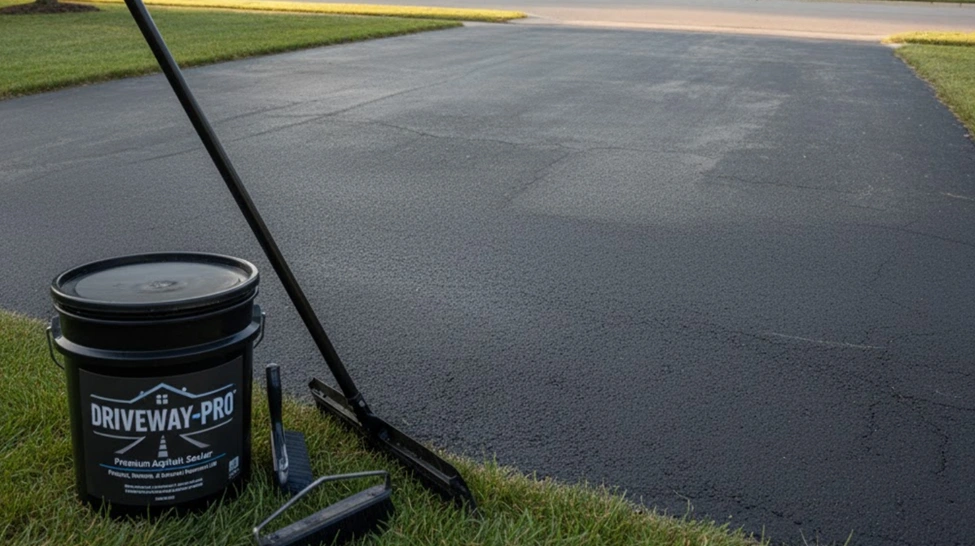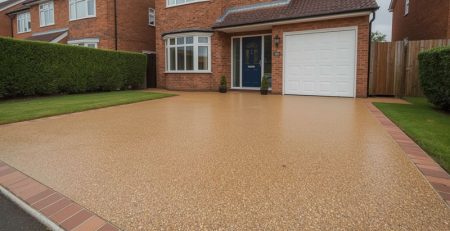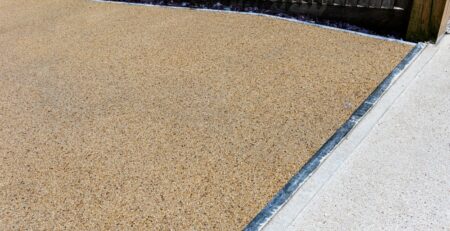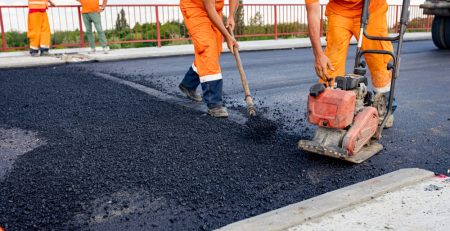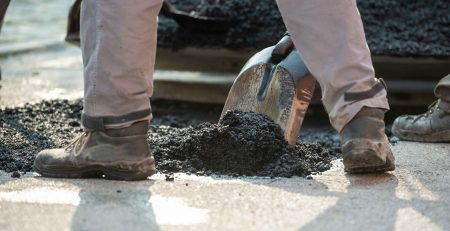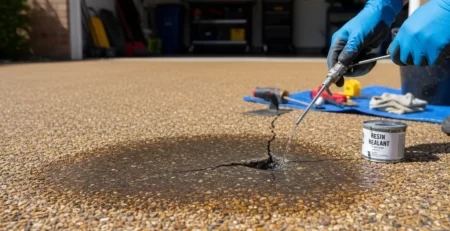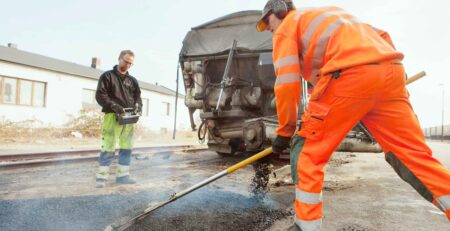How Long Does Driveway Sealer Take to Dry in the UK? 5 Factors
Drying times for driveway sealers vary significantly based on temperature, humidity, sealer type, application thickness, and sunlight exposure. In the UK, most sealers dry to the touch within 4 to 8 hours, but full curing typically requires 24 to 72 hours.
Understanding how weather conditions, product formulation, and proper application techniques influence these timeframes helps homeowners avoid costly mistakes like premature traffic or weather damage.
This comprehensive guide explores the science behind drying times and provides actionable strategies to protect your investment while achieving professional results.
5 Key Factors That Determine Driveway Sealer Drying Time in the UK
Several environmental and technical elements influence how quickly your driveway sealer sets and cures properly.
Temperature Conditions
The ambient temperature dramatically affects how fast sealers dry across UK driveways. Ideal conditions fall between 10°C and 30°C, with optimal results occurring between 21°C and 32°C. When temperatures drop below 10°C, the drying process slows considerably, potentially extending cure times beyond 72 hours.
Higher temperatures accelerate evaporation rates, but excessive heat above 30°C can cause flash drying. This rapid surface curing prevents proper bonding and may lead to premature cracking. Many providers offering complete road surfacing solutions in the UK recommend scheduling sealing projects during mild spring or early autumn weather.
Humidity Levels
UK weather conditions often bring elevated humidity, which significantly delays sealer curing. High moisture content in the air slows solvent and water evaporation from both water-based and solvent-based products. Humidity levels above 60% can extend drying times by several hours or even days.
Lower humidity between 40% and 60% creates optimal conditions for faster drying. Coastal regions and areas with frequent rainfall require extra planning. Professional installers specializing in resin bound driveways in the UK always check weather forecasts to avoid moisture-related complications.
Type of Sealer Used
Different sealer formulations have vastly different drying characteristics. Coal tar emulsion sealers typically dry to the touch within 4 to 8 hours and fully cure within 24 hours. They offer exceptional durability but require careful weather monitoring.
Asphalt emulsion sealers need 24 to 48 hours for light traffic and up to 72 hours for complete curing. Acrylic-based products dry faster, often within 1 to 3 hours for touch-dry conditions, with full hardness achieved in 24 hours. Fast-dry formulations can handle foot traffic in just 1 to 2 hours.
Application Thickness
The number of coats and layer thickness directly impact drying duration. Thin, even applications cure faster and more uniformly than thick, heavy coats. Two thin coats applied 6 to 12 hours apart always outperform one thick application.
Excessive sealer thickness creates uneven drying, leaving sticky patches and increasing the risk of tracking. Many companies providing commercial surfacing in the UK use precise spray equipment to maintain consistent coating depths. Proper application techniques prevent common issues like whitening or flaking.
Sunlight and Wind Exposure
Direct sunlight generates heat that accelerates the curing process naturally. UV exposure helps sealers reach optimal hardness more quickly, especially during summer months. However, intense midday sun combined with high heat can cause uneven curing patterns.
Gentle breezes improve air circulation over freshly sealed surfaces, helping remove saturated air and speeding evaporation. Windy conditions during spray applications can cause overspray and inconsistent coverage. Specialists offering custom finishes for road surfacing in the UK carefully assess site conditions before beginning work.
Average Driveway Sealer Drying Times in the UK
Understanding typical timeframes helps set realistic expectations for when your driveway becomes usable again.
Touch-dry conditions generally occur within 4 to 8 hours for most standard sealers under moderate UK weather conditions. This means the surface feels dry but hasn’t achieved full strength. Light foot traffic may be acceptable after 12 hours in ideal circumstances.
Vehicle traffic should wait considerably longer. Most professionals recommend avoiding driving on sealed driveways for at least 48 to 72 hours. This waiting period ensures the sealer has fully bonded and reached maximum hardness. Resin driveway cost considerations often include proper curing schedules to prevent damage.
Complete curing, where the sealer reaches peak durability and weather resistance, takes up to two weeks. During this period, the sealed surface continues hardening and strengthening. Cheap resin driveways in Hertfordshire and other regions benefit from extended curing times that enhance long-term performance.
For resin-bound surfaces, drying times differ slightly. Summer installations by resin bound driveways installers in Essex may allow foot traffic within 6 to 12 hours, though 24 hours remains the recommended waiting period. Total resin driveways near me searches often reveal installers emphasizing proper curing protocols.
Tips to Speed Up Driveway Sealer Drying
Strategic planning and proper techniques significantly reduce waiting times without compromising quality.
Choose Optimal Weather Windows
Plan sealing projects during dry, mild periods with temperatures between 15°C and 25°C. Monitor weather forecasts carefully, ensuring no rain is predicted for at least 48 hours after application. Avoid sealing during high humidity periods or when overnight temperatures drop below 10°C.
Early morning applications allow maximum daylight drying time. Hertfordshire resin driveways and similar projects benefit from spring and early autumn scheduling. Clear resin driveways in Hertfordshire installations require consistent dry conditions for the best results.
Improve Air Circulation
Position portable fans around the sealed area to enhance air movement and speed evaporation. Remove any barriers that block natural wind flow across the surface. Better ventilation helps moisture escape more efficiently.
Avoid sealing driveways surrounded by dense vegetation or walls that trap humid air. Resin-coated driveways in Hertford benefit from open exposure during curing. Natural airflow significantly reduces drying duration without artificial intervention.
Use Fast-Dry Sealer Products
Modern fast-dry formulations cure in 1 to 2 hours for foot traffic and 24 to 48 hours for vehicles. These advanced sealers contain additives that accelerate evaporation and bonding. They cost slightly more but offer substantial time savings.
Water-based acrylic sealers dry faster than traditional options while providing excellent UV protection. Resin driveways in Hertford installations often use rapid-cure products to minimize disruption. Permeable resin driveway cost calculations should factor in faster turnaround times.
Apply Thin, Even Coats
Multiple thin layers always cure faster than single thick applications. Use rollers or spray equipment to maintain a consistent thickness across the entire surface. Allow each coat to dry completely before applying the next layer.
Professional-grade equipment ensures uniform coverage without pooling or heavy spots. Stone resin driveway cost estimates typically include proper application methods. Natural stone resin driveways require precise coating techniques for optimal aesthetics.
Common Mistakes That Delay Drying
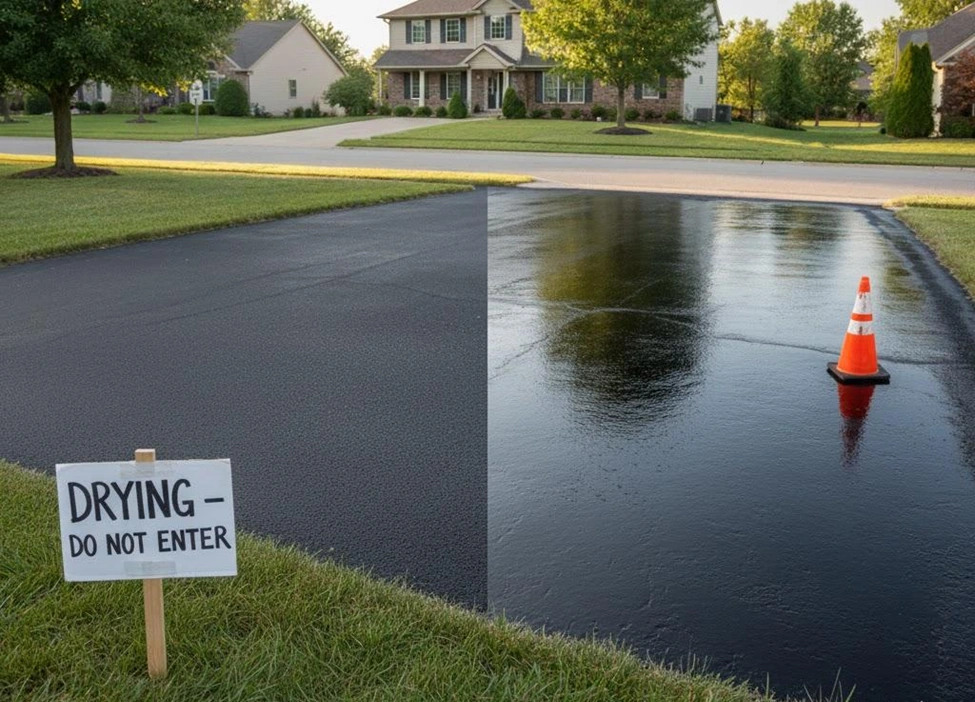
Avoiding these frequent errors prevents extended curing times and potential damage to your sealed surface.
Sealing in Poor Weather Conditions
Applying sealer when rain is forecast within 24 to 48 hours causes wash-off and streaking. Moisture interferes with bonding, leaving patchy, uneven finishes. Always verify extended weather predictions before starting work.
Sealing during cold snaps below 10°C or extreme heat above 30°C creates adhesion problems. The cost of a bonded resin driveway increases when remedial work becomes necessary. Resin driveways in the UK require careful timing to avoid weather-related failures.
Inadequate Surface Preparation
Failing to thoroughly clean the driveway before sealing prevents proper adhesion. Dirt, oil stains, and debris create barriers between the sealer and surface. Power washing and degreasing are essential preparation steps.
Trapped contaminants cause bubbling, peeling, and premature failure. Resin paving driveways in Hertfordshire demand spotless surfaces for maximum sealer performance. Allow cleaned areas to dry completely for 24 to 48 hours before application.
Applying Sealer Too Soon After Installation
Freshly poured concrete needs 28 days minimum to cure before sealing. New asphalt requires at least 90 days for proper off-gassing. Premature sealing traps moisture inside, causing blistering and whitening.
Use moisture meters to verify readiness before proceeding. Resin driveway cost estimates should include appropriate waiting periods. Custom resin driveways benefit from patience during initial curing phases.
Using Excessive Sealer Amounts
Over-application creates thick, sticky layers that take far longer to dry. Excess products also increase costs without improving protection. Heavy coats develop uneven textures and become slippery when wet.
Two properly thinned coats outperform one heavy application in durability and drying speed. Resin-bound driveways in Hertford installations use precise material calculations. Affordable driveways maintain quality through proper product ratios.
How to Know When the Driveway Sealer Is Fully Dry?
Several reliable methods confirm your sealer has achieved complete curing and hardness.
Perform a gentle touch test in an inconspicuous area. Fully dried sealer feels firm and non-tacky. If your finger leaves an impression or feels sticky, additional curing time is necessary. The surface should display a uniform, glossy finish without dull patches.
Visual inspection reveals important clues about drying progress. A consistent sheen across the entire driveway indicates proper curing. Darker or lighter areas suggest uneven application or incomplete drying. Avoid traffic until the surface appears uniformly finished.
Check for temperature stability. Freshly sealed surfaces often feel slightly warm as chemical reactions occur. Once the surface matches ambient temperature, curing has likely progressed sufficiently. Resin driveway cost estimates factor in verification procedures that prevent premature use.
Professional installers sometimes use moisture meters to verify complete curing. These devices detect trapped moisture beneath the surface layer. Most residential applications rely on time-tested visual and tactile assessment methods proven effective across diverse UK conditions.
Where We Provide Professional Surfacing in the UK
At Total Surfacing Solutions, we offer dependable surfacing and driveway services throughout key UK locations, including Hertfordshire and Essex. Our focus is on delivering long-term performance and clean, professional finishes.
Hertfordshire:
We serve the Hertfordshire community with a complete selection of surfacing options. From tarmac and resin driveway installation to road resurfacing, car park construction, and playground development, our team ensures every project is built to last. Our line marking work provides accurate, durable markings for commercial and public environments.
Essex:
Our Essex operations continue to meet the needs of homeowners, councils, and commercial clients. We specialise in resin bound driveways, tarmacadam surfacing, driveway repairs, commercial resurfacing, and recreational surfacing. Each project is delivered with precision, ensuring a smooth, attractive result that enhances any outdoor area.
Total Surfacing Solutions is your trusted choice for quality surfacing work across Hertfordshire and Essex.
Frequently Asked Questions
Can I Walk on My Sealed Driveway After 24 Hours?
Light foot traffic is generally safe after 24 hours under ideal conditions. However, 48 hours provides better security against tracking or damage. Avoid dragging heavy objects or wearing sharp footwear during this period. Temperature and humidity affect these timelines significantly.
What Happens If It Rains Before the Sealer Dries?
Rain within the first 24 to 48 hours can wash away uncured sealer, creating streaky, patchy surfaces. The sealant may not bond properly, requiring complete reapplication. Always check weather forecasts and postpone sealing if precipitation is predicted. Emergency tarping may protect partially dried surfaces.
How Long Should I Wait Before Parking on a Newly Sealed Driveway?
Wait at least 48 to 72 hours before parking vehicles on sealed surfaces. Heavy vehicles require longer curing times than passenger cars. Hot tyres during summer can leave impressions in insufficiently cured sealers. Following manufacturer guidelines prevents permanent damage and ensures maximum protection.
Do Different Sealer Types Require Different Drying Times?
Yes, sealer chemistry significantly affects curing duration. Acrylic sealers dry fastest at 1 to 3 hours for touch-dry conditions. Asphalt emulsions need 24 to 48 hours. Coal tar products typically cure within 4 to 24 hours. Always consult product specifications for precise timing recommendations.
Maximising Longevity Through Proper Curing
Allowing adequate drying time prevents costly repairs and maximizes your driveway’s protective capabilities and aesthetic appeal. Most UK installations require 48 to 72 hours before vehicle traffic, with complete curing taking up to two weeks, depending on weather conditions and sealer type.
Rushing this critical process compromises both durability and appearance, often requiring expensive reapplication or repair work. Temperature fluctuations, humidity levels, and proper application techniques all play crucial roles in achieving professional results.
By following manufacturer guidelines, monitoring weather conditions carefully, and avoiding premature traffic, you ensure your sealed driveway delivers years of reliable performance, enhanced curb appeal, and maximum return on investment.
Professional installers understand these variables and adjust their schedules accordingly to guarantee optimal outcomes regardless of challenging UK weather patterns.

